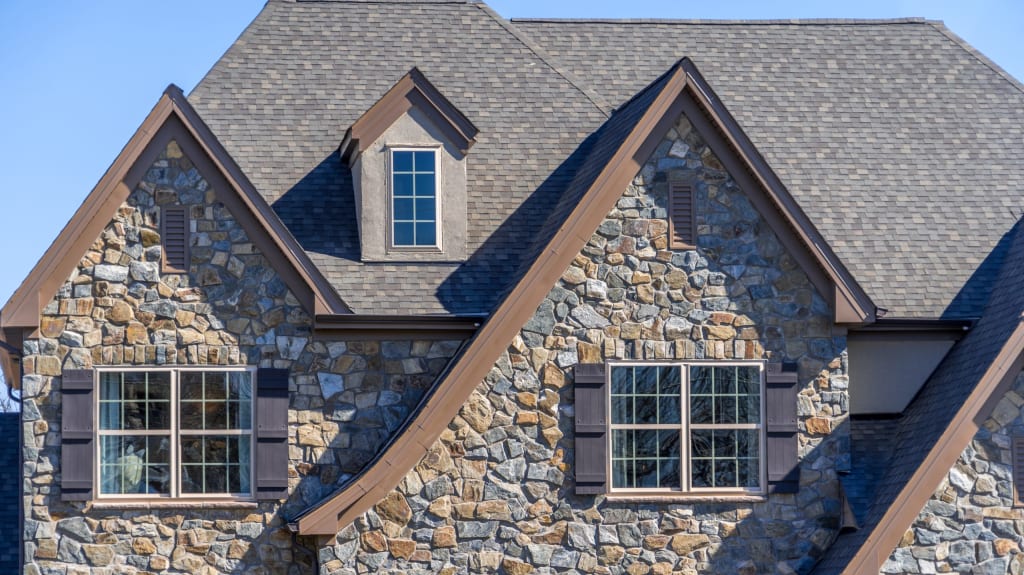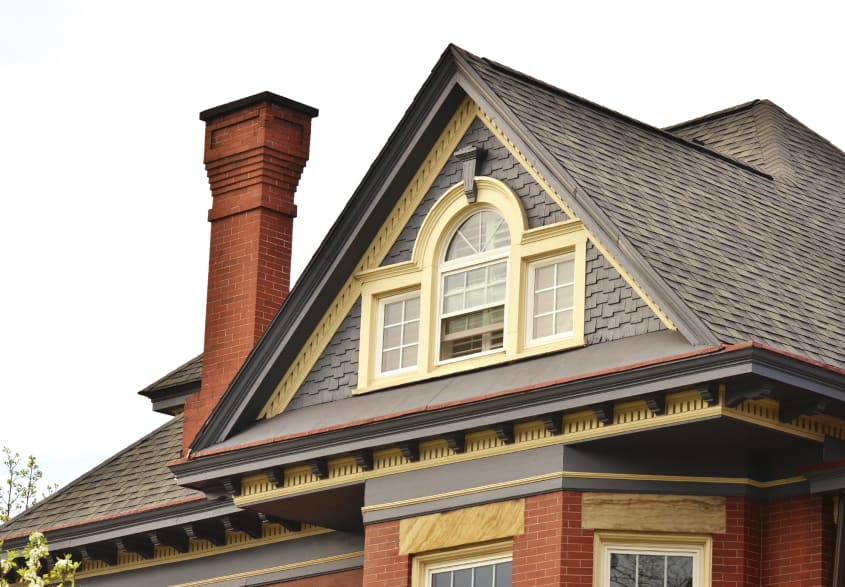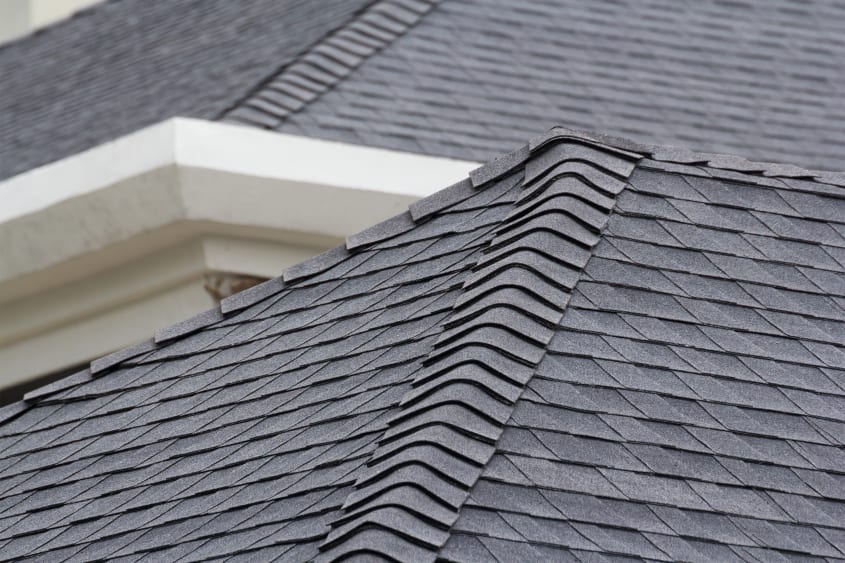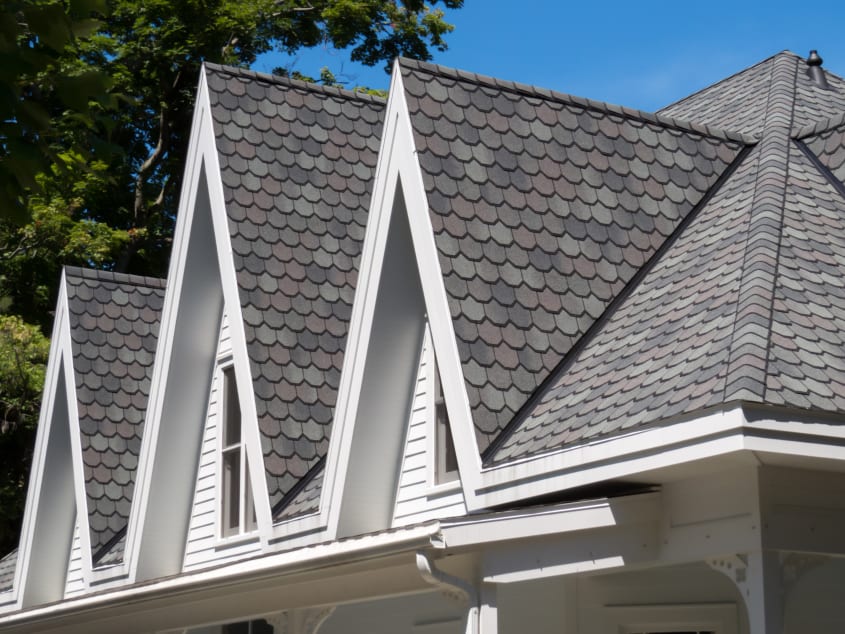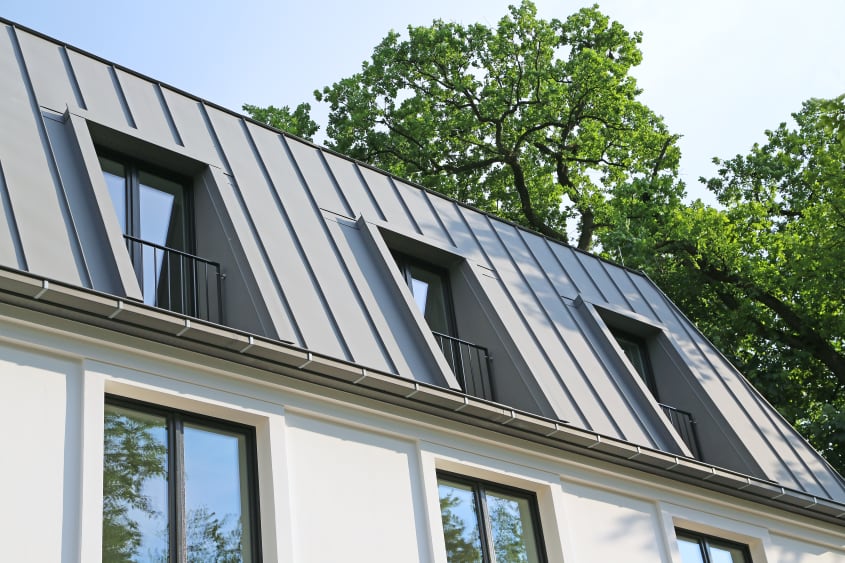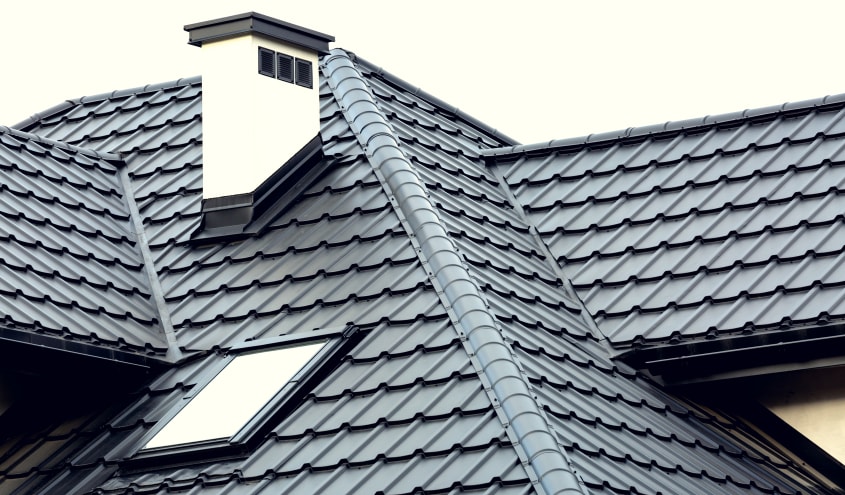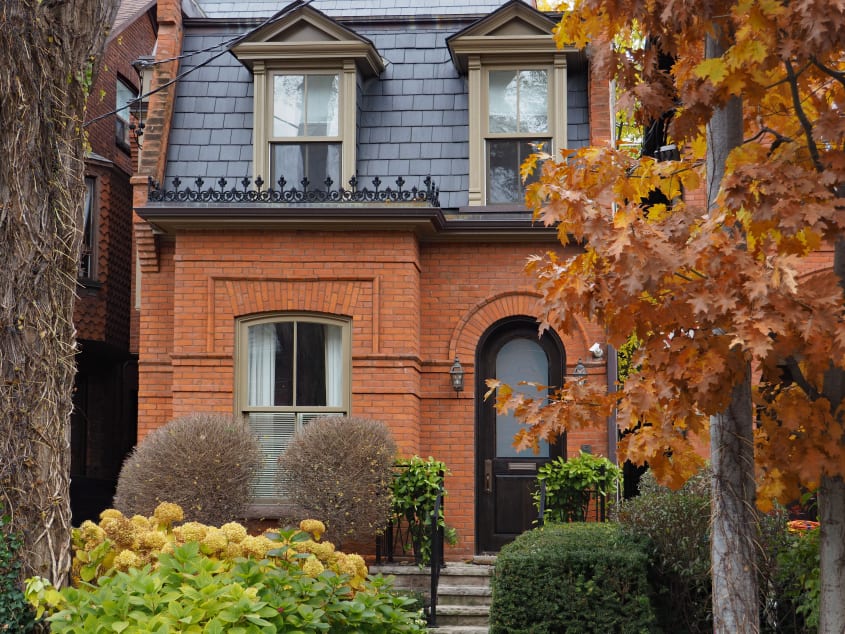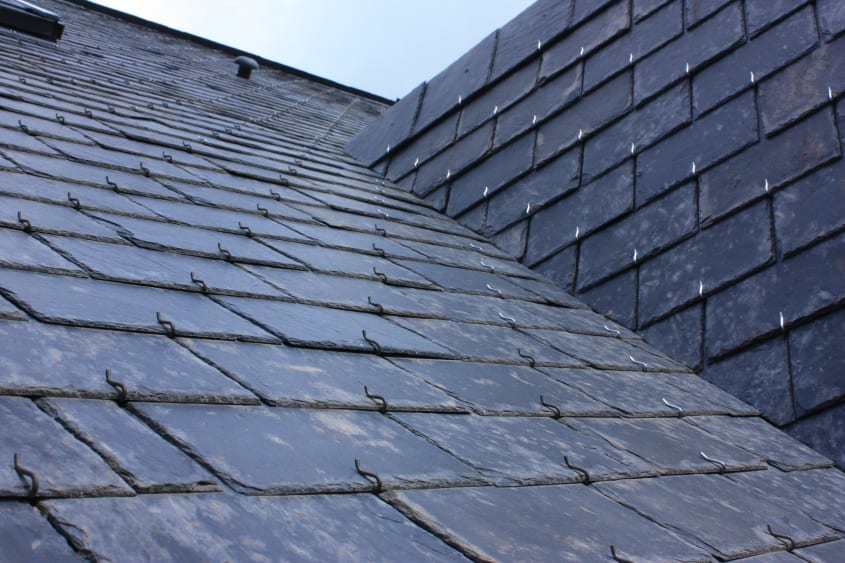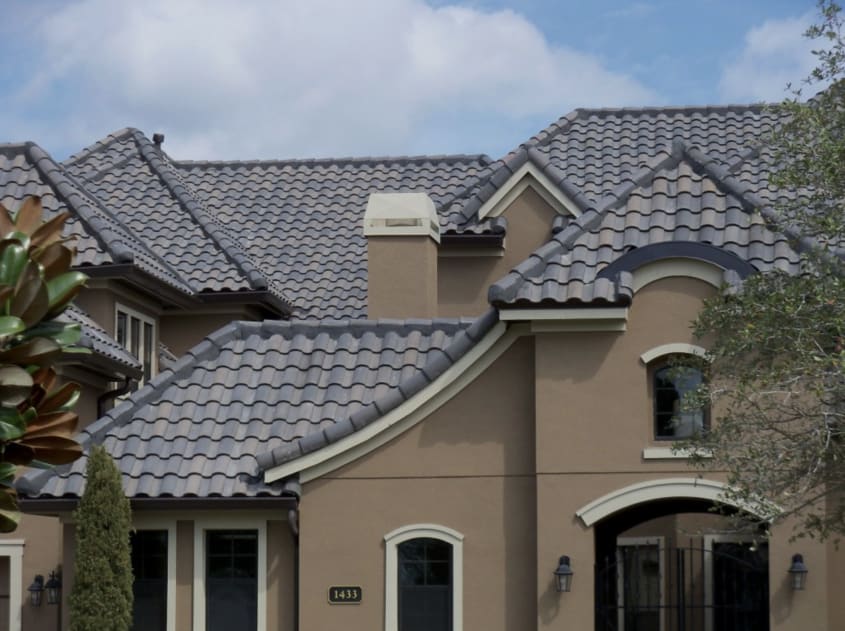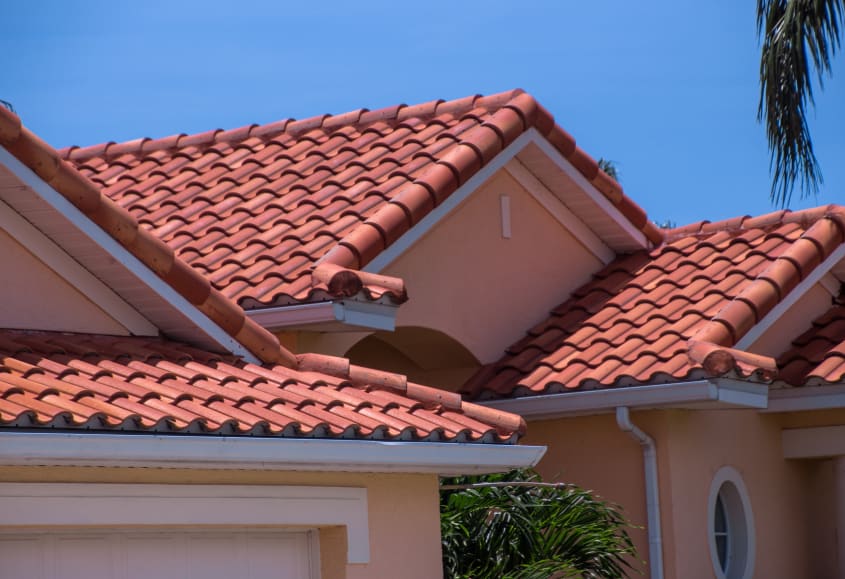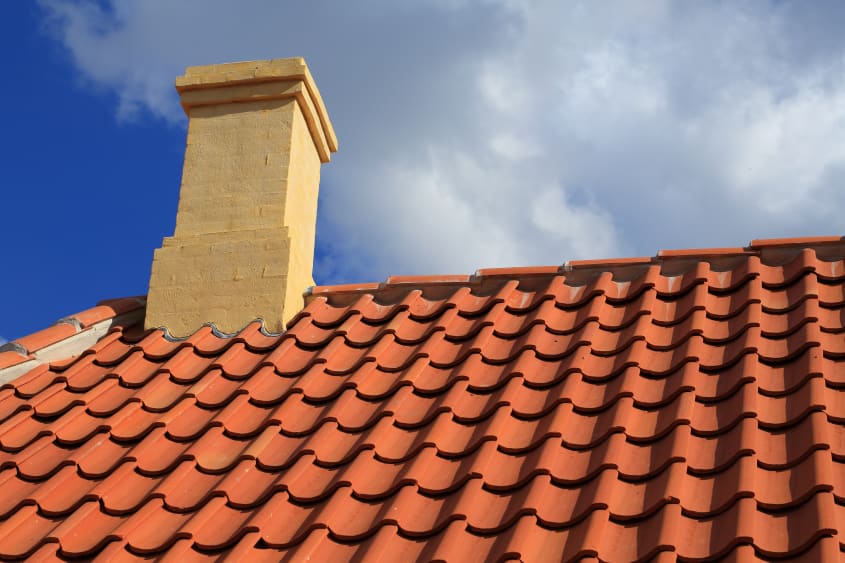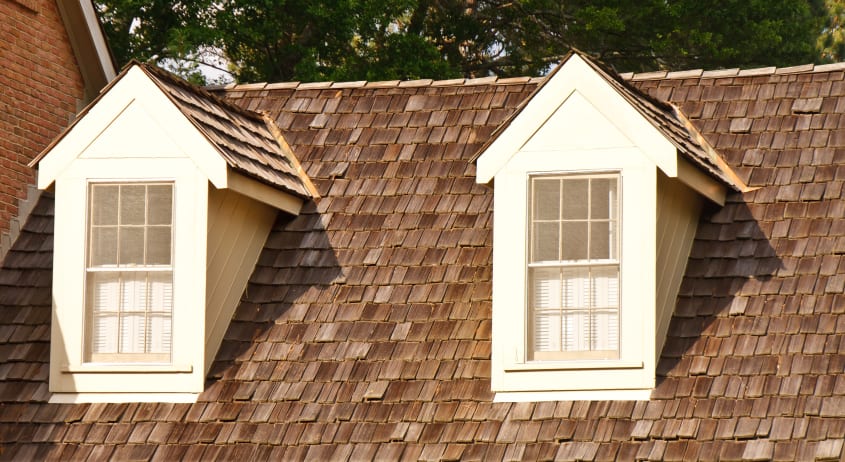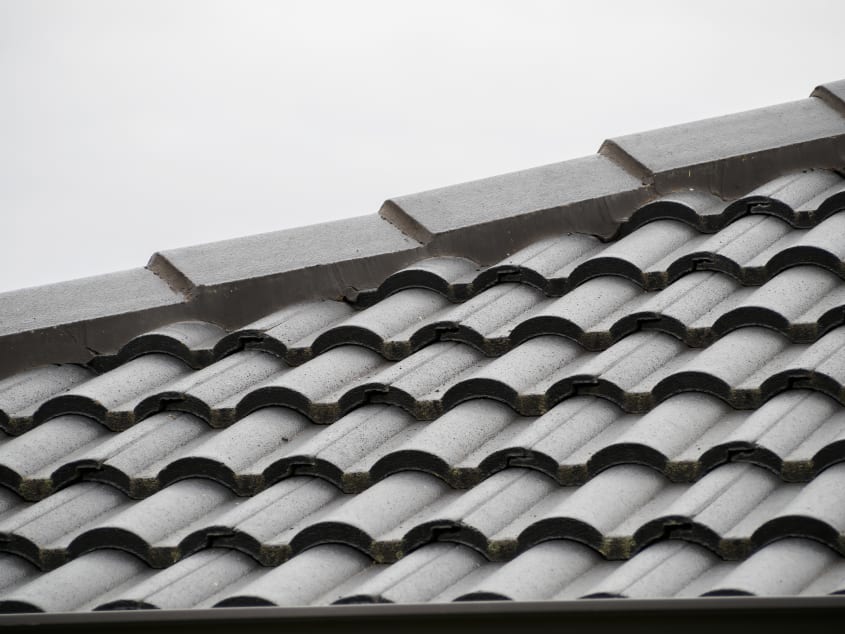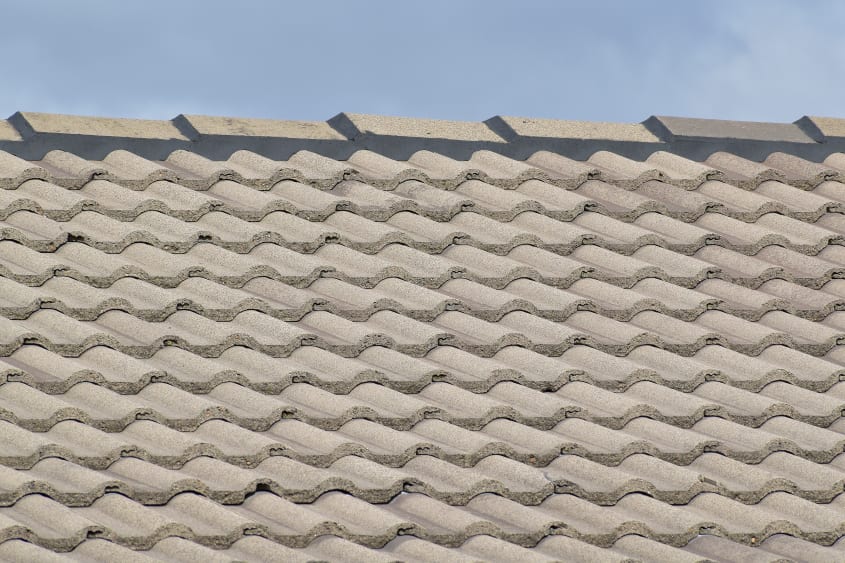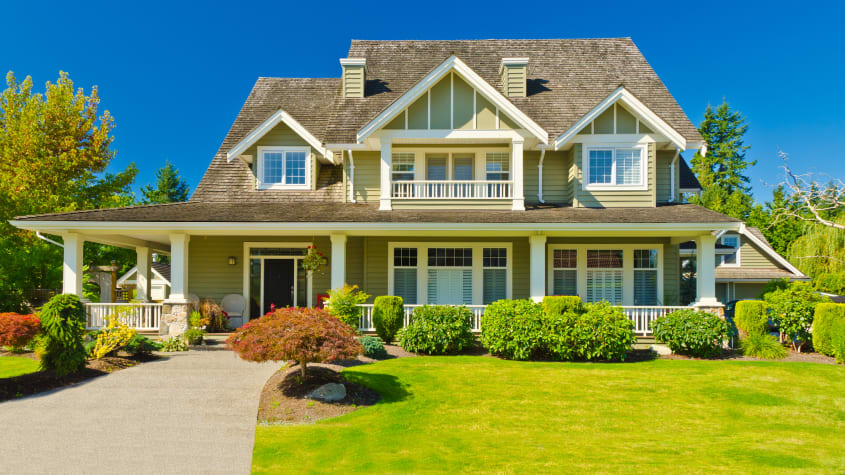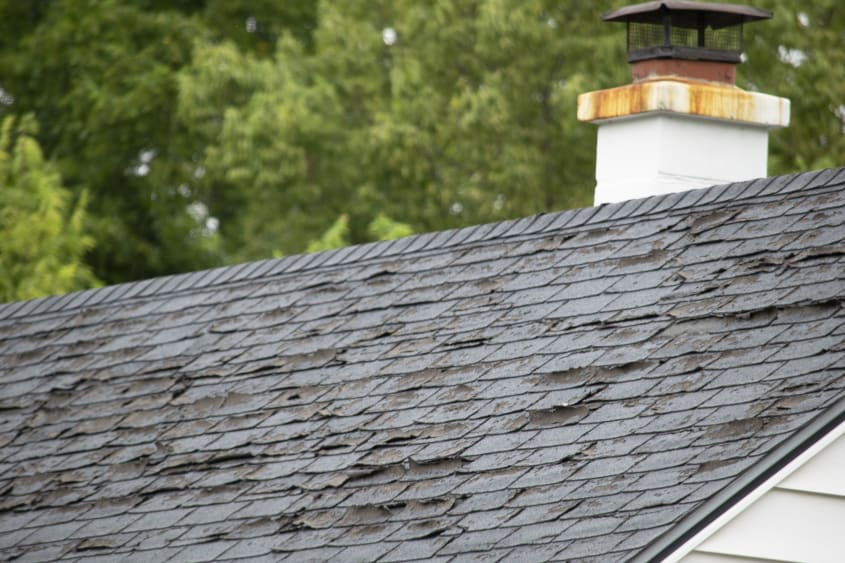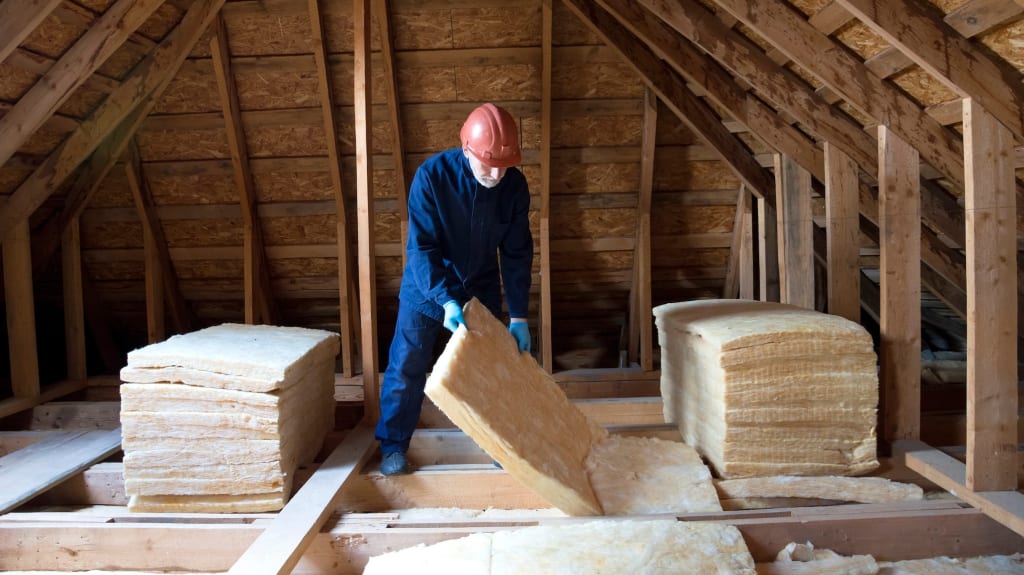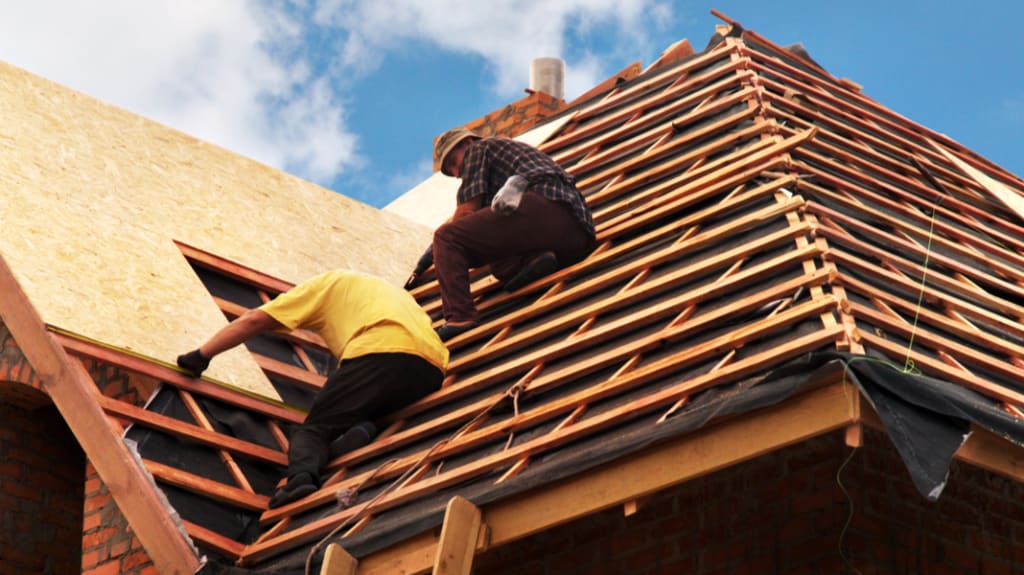Pitched roofs tend to be the norm for residential homes. They look nicer and have better resistance than flat roofs, plus there are a lot of different materials to choose from. Asphalt, terracotta, steel… each material has its pros and cons and some may not be suitable for your climate. To help make your roof replacement project a bit easier, we’ve gone over the most common material choices, along with their price points.
Asphalt shingles
Asphalt shingles are the most common type of roofing material on the market. They come in a variety of styles and price ranges. These shingles are great to replace any kind of pitched roof material. For instance, you can easily replace a metal roof with shingles. The opposite isn’t necessarily true as metal roofing is much heavier than asphalt shingles, thus requiring more work. Also, if some shingles are damaged, they can easily be replaced by your roofing contractor.
Asphalt shingles can last up to 20 years but high-quality ones can last up to 50. Their higher cost is well worth it in the long run. And it’s worth mentioning that most manufacturers offer a long warranty along with their product.
As for installation, your roofer first installs a base, usually a fibreglass mat or organic felt, and then moves on to the surface layer (i.e., asphalt shingles). You can also find eco-friendly and recyclable asphalt shingles on the market. Of course, you’re likely to have to pay a little extra for those.
Pros of asphalt shingles:
Can be affordable
Quick installation (1–2 days)
Can be eco-friendly
Cons of asphalt shingles:
Can be affected by extreme weather conditions
Metal roofing
Metal roofing is our second most common roofing material. It typically lasts between 40 and 70 years, making it well worth it for those wanting to spend a little more. Moreover, you can achieve different aesthetics by using different types of metal panels. They’re typically made of steel or aluminum and can have a standard seam, mimic the look of shingles (die-formed panels) or come in long rectangles called Bermuda panels (installed horizontally down the slope of a roof). The most common metal roofing option has standard seams.
While metal roofing comes in many forms, it does have some downsides, the biggest one being that it can be fairly noisy (in rain or strong winds). Though, what’s great about this product is that it can be created with recycled metal, which makes it environmentally friendly! It can also be recycled once its lifetime is over.
Pros of metal roofs:
Long lifespan (up to 70 years)
Environmentally friendly
Can be lightweight
Comes in various forms
Cons of metal roofs:
Loud (due to rain or wind)
More expensive upfront cost
Can be damaged by strong hail storms and other debris
Slate
Slate is typically seen on older buildings as its lifespan is quite long (75–150 years). However, due to its cost and weight, it’s rare to find a new home with this material. From a practical standpoint, slate roofs are highly durable, aren’t easily bleached by the sun (as they’re made of natural stone) and are highly fire resistant. Slate is unique in many ways: it comes in a variety of colours and textures.
Given that slate isn’t all that common and that it has many drawbacks if installed incorrectly, there are very few roofers willing to install it. Installing slate onto your home requires the help of a structural engineer to reinforce your home’s structure before even getting started. Some homes might not even be able to support the extra 800–1,200 lbs. even if you attempt to reinforce them.
Pros of a slate roof:
Keeps its colour
Long life expectancy
Can give your home a unique look
Cons of a slate roof:
Very heavy
Expensive
Can break easily upon impact
Clay roofing tiles
Clay tiles can be seen on a number of old buildings as they have stood the test of time for over 100 years. Although expensive, they have an extremely long lifespan, making them a worthy investment. However, given our extreme weather fluctuations in Canada, only certain types of clay can be used on your home and it doesn’t mean they’ll be all that resistant. Clay tiles tend to be used in areas with warmer climates like California or countries in Southern Europe.
Clay tiles also have similar issues to those of slate tiles: they’re heavy and need structural reinforcement before they can be installed. Keep in mind that both the material and labour costs will be steep because few qualified roofers are willing to install it.
Pros of clay tiles:
Long lifespan
Insulating properties
Cons of clay tiles:
Extremely heavy
Not ideal for our climate
Expensive
Easily damaged
Cedar shingles or shakes
Wood shingles, more specifically cedar shingles, aren’t as common as asphalt shingles or metal roofing. However, heritage homes and cottages tend to have wood as roofing. Cedar roofing is usually treated, making its lifespan last longer than if it stayed in its natural state. This material typically lasts 30 years but requires regular maintenance to do so. If well treated and taken care of, it won’t rot and will withstand extreme weather conditions. Though, if you take into account their higher price tag, the fact that they’re highly flammable (because of treatments and stains) and the need to maintain them, cedar shingles might not be the best choice for your home.
Pros of cedar shingles or shakes:
Invulnerable to decay (if properly treated)
Lightweight
Cons of cedar shingles or shakes:
High price
Constant maintenance
Flammable
Concrete Tile
Concrete tiles are aesthetically quite similar to clay tiles both in style and weight but concrete is far more suited to our harsh Canadian climate. Unlike clay tiles, concrete can withstand colder temperatures without cracking. Concrete tiles are also fireproof and water-resistant when sealed and treated properly. But, if not treated correctly, the porous concrete material will soak up water leading to potential issues with mould and mildew later on.
Pros of concrete tile:
Can be painted in a wide array of colours
Fire and water resistant when treated and sealed properly
Can withstand cold temperatures without cracking
Cons of concrete tile:
Colour is more susceptible to fading than clay tiles
Easy to make installation mistakes
Material is rather heavy
What about eco-friendly roofing solutions?
Each material mentioned above has its set of pros and cons,F and most of them have some way to be eco-friendly. For instance, asphalt shingles and metal roofing can be recycled, whereas slate, clay and wood are all natural materials. But what about going that extra mile when it comes to being eco-friendly? Of course, you can go ahead and add solar panels to your roof. Though, did you know there are new technological advances allowing homeowners to have solar paneled shingles, like those created by Tesla? We will surely see many homeowners opting for this kind of roofing solution in the near future!
How much does it cost to replace a pitched roof?
Below you’ll find the average costs of pitched roof materials in both Greater Montreal and the Greater Toronto Area, along with their typical lifespans.
Roof Type | Average Cost – Montreal | Average Cost –Toronto (GTA) | Lifespan |
Asphalt shingles | $3.15-$5.25/sq. ft. | $3.75- – $5.25/sq. ft. | 15 to 25 years |
Metal | $15-$26/sq. ft. | $20-$29/sq. ft. | 50+ years |
Slate | $23-$37/sq. ft. | $25.30-$40.75/sq. ft. | 75 to 150 years |
Note: The three listed roofing solutions are those our contractors are most qualified to work with. The other materials are treated on a case-by-case basis as they are rarer.
Replacing a pitched roof on a typical bungalow with asphalt shingles typically costs between $9,000 and $12,000 but it can exceed $36,000 for a more luxurious building. For other materials, such as metal, wood or slate, you’re looking at prices between $18,000 and $96,000. Keep in mind that your roof’s cost will increase depending on the surface area, in addition to any other elements that need to be added. Take a look at our roofing cost article for more details.
Which pitched roof material to choose
Take climate into consideration
Finding the ideal pitched roof material starts with understanding the climate and weather conditions in your region. For example, you may love the look of clay tiles but knowing they don’t hold up well in cold temperatures makes them a poor fit for Canadian homeowners. There are less serious climate considerations to make as well. For example, metal roofs are known to be quite loud when hit by rain or hail.
Evaluate the material lifespan
Material lifespan is another important factor to consider before redoing your pitched roof. While materials like asphalt shingles may be cheaper upfront, their shorter lifespan means you will need to spend more money (and time) on maintenance and upkeep.
Consider your home’s design and style
Of course, factors like price, durability and lifespan are a top priority, so don’t forget to think about the design and style of your home as well. Just because metal roofing can last over 50 years doesn’t necessarily mean it will look good with everything else you have going on.
Look at the energy efficiency
In addition to installation and maintenance costs, you’ll also want to consider how your new roofing material will affect your monthly utility bill. Most times it’s worth it to fork out a little extra money initially to save on the month-to-month cost of running your household.
Make sure it fits in your budget
Staying on budget can be one of the hardest tasks when it comes to home renovations. However, with enough research and willpower, you can find roofing materials that give your house the glow-up it deserves without blowing the budget. Need help deciding? Consider the following materials:
Most affordable Asphalt shingles. They’re also the most commonly used roofing solution.
Best value for money Metal roofing. While you will be paying more, they do last longer.
Most eco-friendly Metal roofing, as it can be recycled and is made of recycled material.
The coolest Slate. It has a unique look and can stand the test of time.
How to know it’s time to get your roof replaced
Many factors can come into play that’ll make you notice it might be time to replace or repair your roof. Here are some signs you should be on the lookout for.
Swollen areas of your roof
Cracked joints
Bowed shingles
Obvious stains or mould spots
Check out our article Best time to replace a roof to recognize the signs that it’s time to change the roofing.
Looking to do a deep dive on the subject? You can always learn everything there is to know about roofing.
A qualified contractor for your pitched roof
Picking the right roofing material for your needs and desired aesthetic is important but so is hiring the right roofer! Materials age, parts need to be replaced, weathering occurs and sometimes installation doesn’t go as well as planned. Avoid the latter by getting in touch with one of our Renovation Advisors. They’ll recommend you up to three Verified Contractors for your roofing project. Each of them has passed our rigorous verification process, so you know you’ll be working with the best.
If you’re ready to get started, call us or fill out our form! Our services come at no cost or obligation.
Happy renovations start here!
